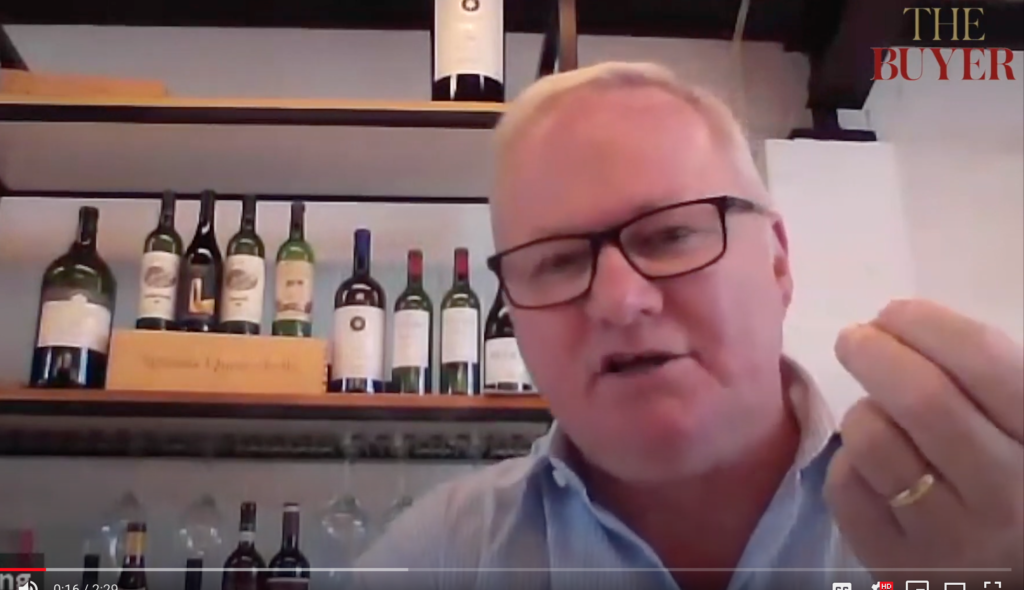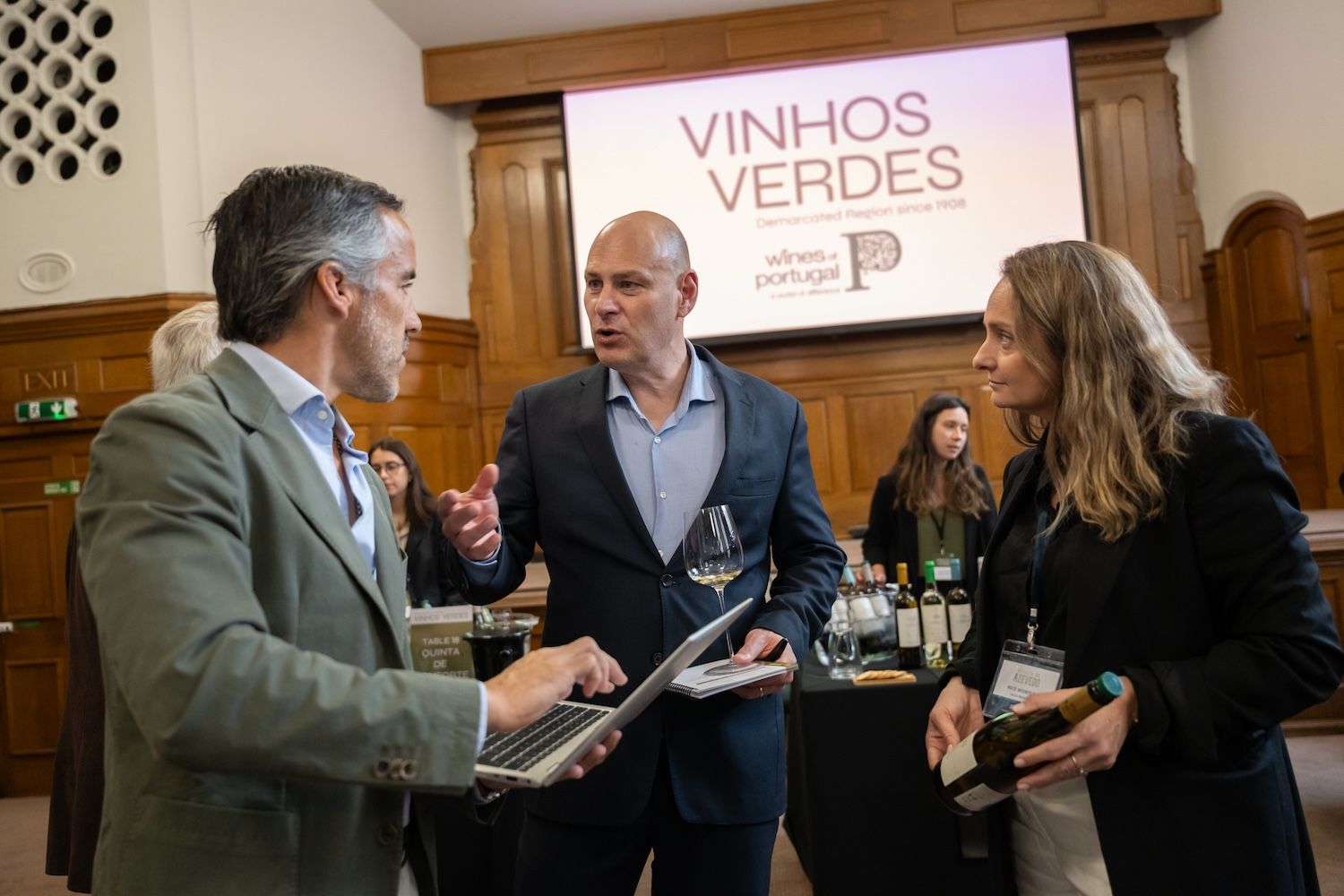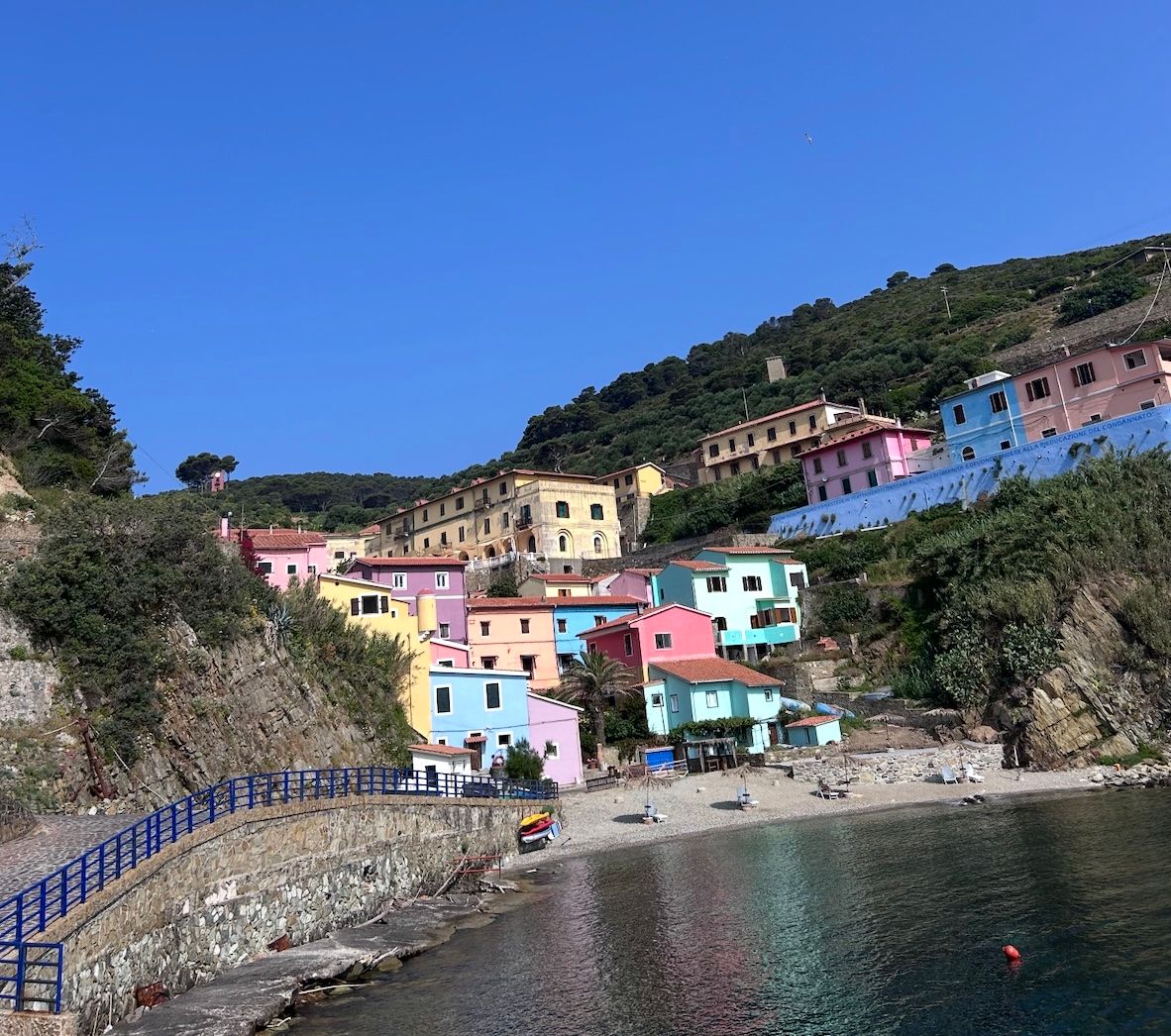The drive, passion and personality of Armit Wines’ Brett Fleming comes shining through in The Buyer’s latest video with one of the wine industry’s most charismatic characters.
(Click here for the full interview between Richard Siddle and Brett Fleming, managing director of Armit Wines).
There has been a lot of noise around Armit Wines in recent years. Little of it has actually come from the company itself. The wine trade likes to do a lot of talking and the chatter around the spittoon tables of rival importers and distributors has been more about what people think is going on at Armit Wines, rather than actually what is happening.
That said it has not done a lot to quieten down the rumours with a succession of big name departures, both amongst its own staff, and from its producer supplier base, combined with poor performance figures.
But for all that noise Armit Wines was, and very much still is, a hugely important UK agency business, with thousands of high net worth private customers, and a network of important on an off-trade customers, all keen to get their hands on its still impressive and exclusive portfolio of premium wine producers from around the world.
All of which was enough for Invivo, the major French co-operative group, to buy the business in 2017 and make the necessary investments to take it to a place where it believes it can go. The individual tasked with leading that journey is Brett Fleming, who moves over from the producer side of the industry, after a wide ranging career that has seen him head up BRL Hardy and the Rathbone Wine Group in Australia and more recently Classica SPA in Tuscany,responsible for big name Italian producers.
Under no illusions
He was under no illusion that he was going into a business that needs some steering. But that was very much the challenge he was looking for, particularly as it allowed him to achieve a long held ambition to work on the importer side of the fence.
It was probably not the best time last November to be joining any business on the brink of a global pandemic. Not that any of us knew that then. He did, at least, have a few months to start to make his mark and get to know the company and the people before lockdown came at the end of March.
Even in that short time he identified the areas where he felt the most immediate changes need to be made, which was largely around the gaps in talent he felt the company would need if it was to really go on and achieve its potential.
It’s clearly, though, been a frustrating time not to have his team around him, even though Armit has been well placed, with its strong private client business and network of specialist independent retail customers to really push on and achieve very good sales during the Covid-19 lockdown.
So much so it did not need to furlough any member of staff during the lockdown. Even the on-trade team was kept on. He says heit was important to show that commitment to its staff through this time. It was also only possible because of the strength and support it has from the Invivo Group.
(Click here to see how and why Armit did not furlough any staff during lockdown)
“People will always say their people are more important than anything else and this was an opportunity for us to actually tangibly show that rhetoric to be real,” says Fleming.
New start, new offices
Plans are now in place to bring staff back into what will be a new office in Hammersmith, and a switch away from its previous head quarters in Notting Hill. But it will be done gradually and with split department teams so that some people will be in the office at the start of the week, and others at the end.
He says they “have taken advantage of Covid” in order to look at the “administrative” side of the company and it has been able to secure a new office at a very good rate, as it might only have lifespan of three to five years before being pulled down or renovated. That, he says, gives the business the time to get a position where it can look to either stay where it is, or move to bigger premises (3 minutes). But equally it allows it to almost start afresh, if you like, with new “Covid-friendly” working practices all set up from day one.
Strategic changes
One of the big strategic changes that Fleming is keen to drive through is to shake up its current business turnover split between a third private client, a third through its merchants business selling to the likes of Berry Bros, and then a further third made up of regional wholesale, multiples and the on-trade.
He says he “wants all our channels to grow” (7 minutes 20 seconds) and has “aggressive and ambitious plans” to make that happen.
(Click here for how Brett Fleming wants to culturally change Armit so that it truly represents the interests of its producers.)
Fleming certainly did not stop during lockdown to put the changes he feels are necessary to take Armit forward. In fact, he has been able to bring in a couple of key new recruits he thinks will really help the business long term. Further details will follow, but one new hire is a national accounts manager with the clear focus on building “significant” new business with the major supermarket groups, particularly around exclusive premium own labels from France and Italy.
Again this is where the ownership of Invivo really comes into play and the large volumes of wine it has available to work with major supermarket groups and “raise the flag in a way that Armit has not done before”.
“I’m determined to attack it,” says Fleming and not just sit back and ignore the whole sector as it is not part of its core business. “It’s on us to convince the supermarket buyer that it’s in their interest to [worth with it].”
(Click here to see why Brett Fleming wants Armit to work closely with the major supermarkets)
Big cultural change
Another clear part of Armit’s new strategy is to have a long term managing director. Fleming says he would be more than happy, if needed and wanted, to be still in his role in 10 years time.
In order for him to do that, though, will mean a big change in the “culture” of the business (8 minutes 48 seconds). In particular, he will be driving a change in mindset and behaviour that means staff are not simply “allocating” wines of famous, much in demand producers, like Sassicaia, to actively “selling them” to the right customer for that wine. That’s the big cultural change Fleming wants to bring to Armit. Now.
It also speaks volumes of his 30 years heading up major, prestigious producers from elite regions such as Tuscany. He knows exactly and is “in tune with” what sort of service and expectations the very top wine producers want from their importers and distributors in their key markets. And they don’t get more important than the UK and the private client, merchant and on-trade sectors there.
“What I really want to change in Armit is we need to represent our suppliers in absolute terms,” he says, “and not just sit here and allocate wines to people who we think we can afford to let have our wines. It breeds maybe not an arrogance, but it certainly breeds an element of that.”
Brand managers not buyers
(Click here for Brett Fleming on replacing buyers with brand managers with accountability for both buying and sales roles.)
Fleming is particularly pleased to have inherited a team that now has brand managers rather than wine buyers calling the shots and planning a full trade and business strategy for different producers and their all important brands.
He does not pull his punches when discussing the merits of the buying team, claiming theproblem before was there was a “clear lack of accountability” amongst the buyers about the wines they bought and then subsequently how much they sold.
If a brand manager is doing their job correctly, says Fleming, they will be combining both the buying and selling elements in their role, working in direct partnership with their supplier. Again going back to the importance of acting, at every stage, in the best interests of their producers and building the equity of their brands in the right sales channel in the UK, he stresses.
In fact he admits he is “still more weighted as a producer than as a distributor” (13 minutes 40 seconds) which is a balance he clearly does not want to lose.
Challenges on joining Armit
(Click here for Brett Fleming on the challenges he faced joining Armit and how he is turning it around)
Fleming makes for a great interviewee in that he is clear and focused in what he says, but is also frank and transparent, which is not always the case for those in his role.
For example, he says, when he first joined Armit in November he was faced with what he describes as a “slightly dysfunctional sales mix and didn’t have the right team”. That’s been his number one priority.
Invivo’s ownership had already started to look at improving its systems and the operational side of the business, meaning Fleming could really focus in on the marketing and sales side, which, he claims, has already paid dividends and allowed Armit to mark a “significant” contribution back to Invivo in such a short period of time – which Fleming describes as “a comfortable swing of £1m in EBITDA”.
It has also worked hard to look at its supplier base and make the difficult, and hard, decisions about which producers it can really focus on and support, and which ones it needs to let go.
That way, he says, it can now make sure it can do a great job for all its suppliers, rather than an “OK one” for the majority of them (16 minutes 45 seconds).
Fleming: re-assuring producers and excitement for the future
(Click here to watch Brett Fleming on convincing producers about Armit’s new strategy and excitement about its future)
Fleming, though, stresses he spent the first three months in the role he spent going around all his producers with his “cap” in his hand “trying to convince them to stay”. Particularly in the wake of Gaia’s crushing decision to move away from Armit before Fleming joined the business.
It’s a decision says he really regrets as he is confident it would have stayed if it could see what change were being made. But, he says, it was also the consequence of Armit not delivering on its promises and giving such an important producer the “service or the attention that was required”.
But in fairness to the Armit team a lot of those mistakes, he says, stretch back two or three years to pre-Invivo days and much of the negative perception around Armit is now out of date. “Which means I am now in a lot of people’s blind spot and that puts me at an advantage” (20 minutes).
Armit, he stresses, has now gone through its hard times, its restructure and has regrouped enough to now start winning back and finding new business and is so well placed for its future.
“We’ve weathered this storm and now intend to capitalise on it” (21 minutes).
So much so that Fleming says Armit is currently around a £21 million business, but he wants to grow that to £30m within three years, or sooner, and then finally push it up to £50m, but not much more than that. If it can achieve that then it would be “a very healthy and targeted icon suppler in to the UK market for all channels” (22 minutes 30 seconds).
Why Armit, why now?
(Click here for why Brett Fleming wanted to join Armit as managing director).
Hearing Fleming talk about his respect for premium wine producers and his deep understanding of how they work, then it is not hard to see why he would want to join Armit. Particularly when he explains how he felt he could play a significant role in healing the “disconnect” that had clearly happened between the business and some of its key suppliers.
Time and again he goes back to the skills and attitude of the people within the business that is so important in being able to turn a business around. The importance, he says, for “respect” for the product they have and who they sell it to. It sounds simple, but it’s clearly so hard to get right and essential for the success of the company.
Another key part of the perception around Armit in the trade is Fleming’s decision to sponsor the Court of Master Sommeliers, which is for an initial year, but he wants it to become a longer term partnership.
It not only means an opportunity for its producers to be part of the training courses and tastings that the sommeliers go through, but it will hopefully, he says, foster a working partnership and a greater awareness of those wines to the next generation of leading sommeliers working in the world’s best restaurants.
Being a business leader…and Brexit
(Click here for Brett Fleming on being a business leader and dangers of Brexit).
Fleming finishes the interview by reflecting on what it has been like as a business leader through Covid-19. Again he is quick to refer to his staff and how well they have performed and come together at this time.
But we can’t ignore, he stresses, the impact and threat of what real damage Brexit could do to the sector unless the government eases the expected red tape and dreaded VI-1 forms.
Ultimately, though, he says, as a wine importer its success will all come down to how much “respect” and “responsibility” it shows the producers and wine brands they work with (45 minutes 30 seconds).
“Our professionalism as a business will come through if we respect our suppliers and our professional in our duties in how we execute their expectations into the UK market,” he says.
“Fundamentally that is what I am trying to bring into Armit.”









































